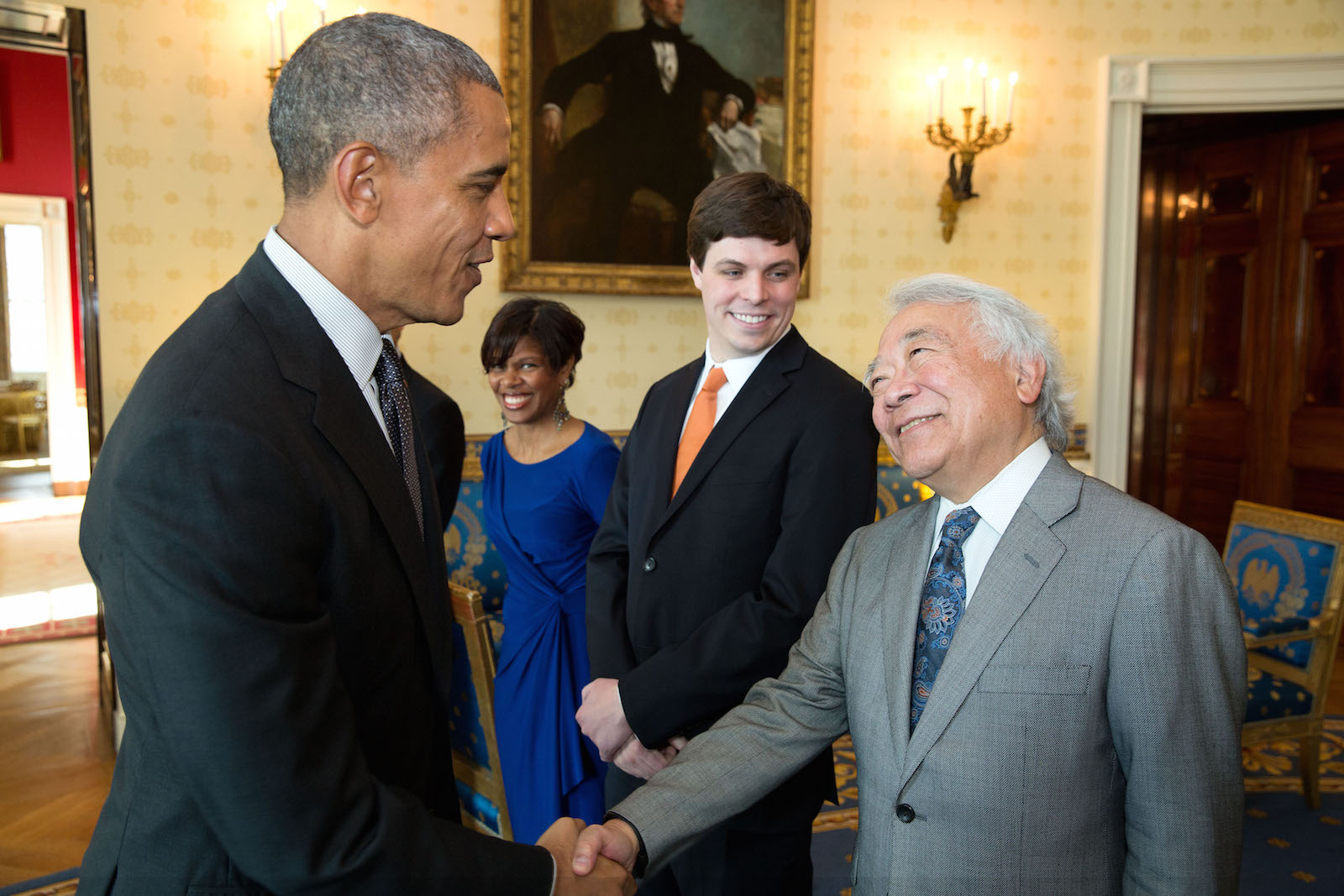At a White House ceremony in January, President Obama announced a “bold new research effort to revolutionize how we improve health and treat disease” called the Precision Medicine Initiative.
Keith Yamamoto (biochemistry and biophysics, B.S. ’68) has been helping to make precision medicine happen since 2009, when he was involved in a national effort that conceived the precision medicine concept, and recommended its implementation. As the Vice Chancellor for Research and Executive Vice Dean of the School of Medicine at the University of California, San Francisco (UCSF), and a molecular biology professor and researcher, Yamamoto has continued to advocate for precision medicine in Washington, D.C., and leads a major precision medicine effort at UCSF.
Precision Medicine uses advanced computing tools to collect, integrate, and analyze huge sets of comprehensive data across basic research and human subjects. It encompasses molecular as well as social, behavioral, and population data from patients and healthy people, creating an interactive network of knowledge that would reach toward precise diagnosis and treatment decisions for each individual. Doctors use this data to choose exactly what drug a patient needs, a new tool to avoid ineffective or dangerous drugs and prescribe only what will work.
“A huge knowledge network would reveal correlations that wouldn’t have been seen before,” Yamamoto said. “By aggregating, integrating, and analyzing big data, we would be able to make more accurate diagnoses on the clinical side, and envision a new testable hypothesis that will move knowledge further forward.”
The more information we have, the more we can stratify, he said. For the first time, we would be using all the data that is available to us to both enliven and expand the scope of basic science while at the same time using the same data to apply diagnosis and treatment for the health and well being of citizens.
“By aggregating, integrating, and analyzing big data, we would be able to make more accurate diagnoses on the clinical side, and envision a new testable hypothesis that will move knowledge further forward.”
“All these tools could connect to other areas in need of urgent attention, such as food, energy, and the environment that must also be addressed if we are to maintain and improve our quality of life,” Yamamoto said.
What will all of this do to rising costs of health care? Researchers predict that precision medicine will achieve improved prevention; early precise diagnosis; a healthier, more productive workforce; better control of chronic disease; smaller, faster, and more successful clinical trials; and avoidance of unnecessary tests and ineffective therapies. With precision medicine, it is likely that healthcare costs would decline.
The initiative will take years – decades – to achieve its goal of making individualized healthcare available to all Americans. But Yamamoto said it isn’t an effort only our great-grandkids will enjoy.
“It doesn’t have to be finished to be effective,” he said. “The medical practitioners we have now are very good. If we can equip them systematically with a great tool, we can begin to see results.”
Keith Yamamoto is the Vice Chancellor for Research, Executive Vice Dean of the School of Medicine, and professor of cellular and molecular pharmacology at UCSF. He was awarded the John V. Atanasoff Research and Discovery Award from LAS in 2013. He is from Des Moines, Iowa.
